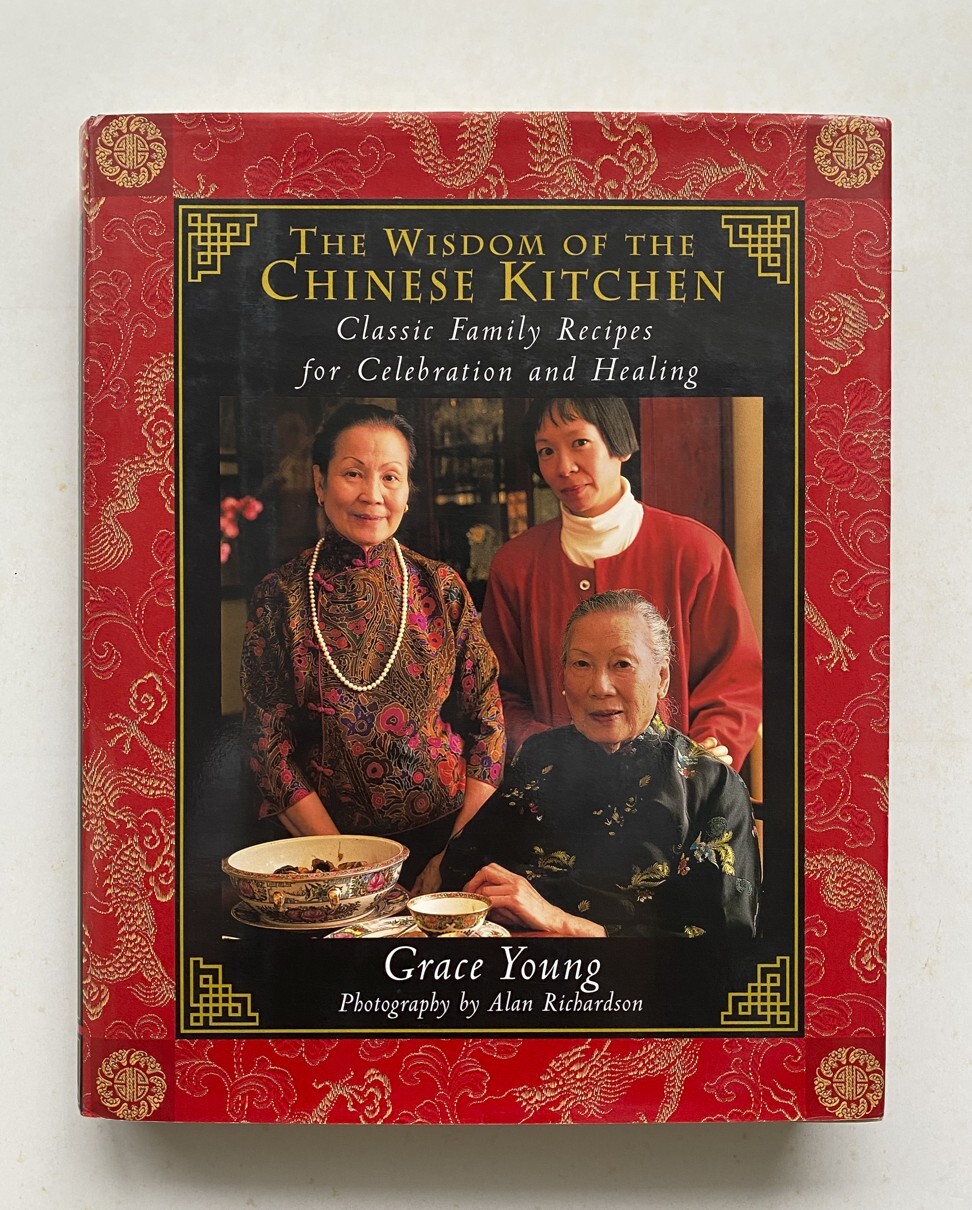
The Wisdom of the Chinese Kitchen: mastering the cuisine goes beyond simply learning the techniques
- It wasn’t until Grace Young became a recipe developer that she realised the gaps in her knowledge of Chinese cuisine
- ‘Chinese cooking is as ancient as its culture,’ she explains in her cookbook
Grace Young’s first lessons in traditional Chinese cuisine did not come in a formal classroom setting. Instead, the cookbook author, food writer and cooking instructor learned about Chinese food through everyday life with her parents in the United States.
In the introduction to her book, The Wisdom of the Chinese Kitchen (1999), Young writes, “In Chinese cooking, every ingredient and dish is imbued with its own brilliance and lore. When I was a young girl growing up in a traditional Chinese home in San Francisco, this knowledge was passed on to me through a lifetime of meals, conversations, celebrations and rituals. I felt every food we ate in our home had a story […]
“Early on, my brother Douglas and I observed that the principles of yin and yang – a balance of opposites – were integrated into our everyday fare. For example, vegetables considered cooling, such as bean sprouts, were stir-fried with ginger, which is warming. Or stir-fried and deep-fat fried dishes were eaten with poached or steamed dishes in the same meal to offset the fatty qualities of the fried dishes. After a rich meal special nourishing soups were served to restore balance in the body […]
“Like many first-generation Americans, I didn’t give my culinary heritage much thought until I was well into adulthood. Growing up in San Francisco, I ate Cantonese homestyle food every day. These were not dishes found on restaurant menus, but rich, savoury dishes with pure, simple flavours that are the hallmark of a home cook.”

It wasn’t until Young began working professionally as a recipe developer that she became aware there was a lot she didn’t know. “As I began to record my family’s recipes, I realised there were huge gaps in my knowledge, having learned Chinese cooking only through casual observations and not from formal study.
“Even with my professional cooking experience and natural familiarity with Chinese cuisine, it required energetic detective work to decipher and understand some of the recipes. For Chinese cooking is as ancient as its culture, with layers of meaning and wisdom that cannot be easily explained […]
“The power and wisdom of Chinese cooking goes far beyond simply mastering the more complex cooking techniques or even knowing the ingredients. For me, the principles that govern Chinese cooking and nutrition are far more intriguing than the Western notions of nutrition, with its focus on cholesterol, vitamins, minerals, fibre, carbohydrates, proteins, and fats in the diet.
“It is a cuisine based on opposites, the yin-yang principles of cooking. This philosophy is so ingrained in my family that it was hard for them to articulate it verbally […] It became clear that I needed to look at the past to understand the present.”
Young’s first recipe is for southern China’s most important staple dish, steamed white rice (northerners would eat a wheat-based dish). Many of her simple, homestyle recipes are meant to go with rice: stir-fried asparagus with shrimp, steamed pork cake with salted duck egg, sandpot braised lamb, stir-fried bitter melon and beef, sweet and sour pork, pepper and salt shrimp, braised steamed rock cod, soy sauce chicken, and stir-fried clams in black bean sauce.

